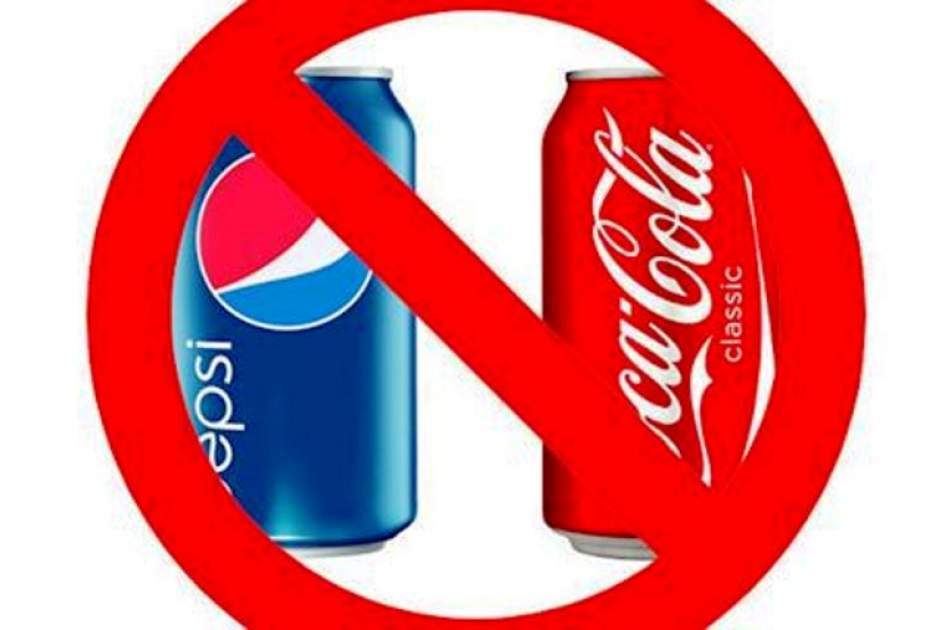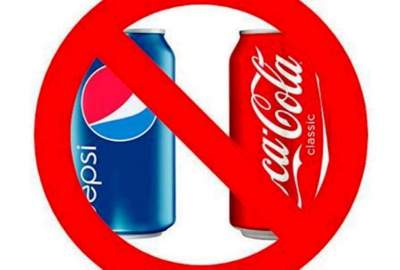Today's View / In a world where injustice and violence take on new dimensions every day, the endless battle against the Palestinians by the child-killing Israeli regime is one of the saddest manifestations of this bitter reality. In the midst of this humanitarian crisis, business giants like Coca-Cola and Pepsi indirectly fuel the financial flow of this violence. The huge revenues these companies make from the sale of their products often end up bolstering Israel's economy and military resources, resulting in continued violence and war. Islamic countries and Muslims around the world, who believe in peace, justice and human rights, should pay attention to this issue and review the use of these brands' products in their daily lives.
Publish dateTuesday 5 November 2024 - 14:37
Story Code : 300030
Income in the service of Israel's child-killing regime;
Why should Islamic countries boycott brands like Coca-Cola and Pepsi?
1. Profitability to provide violence and bloodshed
The revenues of multinational brands such as Coca-Cola and Pepsi are indirectly injected into the Israeli economy and army. These profits help Israel in the production and purchase of weapons and increase its power in the battles against the Palestinians. With every soft drink consumed from these brands in Islamic countries, the costs of this regime are inadvertently provided for repressive measures, most of which are victims of innocent Palestinian children, women and families.
2. Moral and religious conflict with Islamic values
Islam is a religion built on the foundations of peace and justice, and any aid to violence, war and oppression is condemned. In this situation, the use of Coca-Cola and Pepsi products, whose revenues are indirectly used for Israel, contradicts the moral and religious principles of Muslims. Considering the negative effects of these supports, many scholars and jurists consider buying and using these products as haram and recommend that Muslims stop buying and using the products of these brands.
3. The need to embargo and replace domestic products
Islamic countries and consumers can support the domestic economy and prevent money from entering the economic cycle of the child-killing Israeli regime by making a conscious choice and replacing foreign products with local products. Supporting local brands and products, in addition to strengthening the domestic economy, has positive social and political effects and prevents indirect financing of war and violence.
4. Positive consequences of banning Coca-Cola and Pepsi
Banning the products of brands like Coca-Cola and Pepsi sends a strong message to the international community on behalf of Islamic countries and Muslims. This message shows the solidarity of Muslims against war-mongering and violence and announces to the world that any oppression and injustice will not be tolerated under the pretext of economic and commercial interests. A Muslim boycott of these brands not only reduces Israel's revenues, but also empowers consumers to contribute to resistance and world peace by making informed purchases.
5. Health disadvantages of Coca-Cola and Pepsi soft drinks
In addition to political and economic consequences, these brands are also harmful in terms of health. Soft drinks of these companies contain high amounts of sugar and artificial additives that cause problems such as obesity, diabetes, heart diseases and tooth decay. By removing these soft drinks, Islamic countries not only take a positive step from the moral and social point of view, but also guarantee the health of their society.
Conclusion
In today's world, where every purchase and every choice we make can have an important effect on the fate of others, Islamic countries and Muslims should consciously stop consuming Coca-Cola and Pepsi products. By boycotting these brands, we can send a clear and strong message to the world of standing against oppression and supporting peace and justice. This small action can gradually have a big impact on changing the political and social conditions of the world and prevent the continuation of the cycle of violence in the Middle East.
The revenues of multinational brands such as Coca-Cola and Pepsi are indirectly injected into the Israeli economy and army. These profits help Israel in the production and purchase of weapons and increase its power in the battles against the Palestinians. With every soft drink consumed from these brands in Islamic countries, the costs of this regime are inadvertently provided for repressive measures, most of which are victims of innocent Palestinian children, women and families.
2. Moral and religious conflict with Islamic values
Islam is a religion built on the foundations of peace and justice, and any aid to violence, war and oppression is condemned. In this situation, the use of Coca-Cola and Pepsi products, whose revenues are indirectly used for Israel, contradicts the moral and religious principles of Muslims. Considering the negative effects of these supports, many scholars and jurists consider buying and using these products as haram and recommend that Muslims stop buying and using the products of these brands.
3. The need to embargo and replace domestic products
Islamic countries and consumers can support the domestic economy and prevent money from entering the economic cycle of the child-killing Israeli regime by making a conscious choice and replacing foreign products with local products. Supporting local brands and products, in addition to strengthening the domestic economy, has positive social and political effects and prevents indirect financing of war and violence.
4. Positive consequences of banning Coca-Cola and Pepsi
Banning the products of brands like Coca-Cola and Pepsi sends a strong message to the international community on behalf of Islamic countries and Muslims. This message shows the solidarity of Muslims against war-mongering and violence and announces to the world that any oppression and injustice will not be tolerated under the pretext of economic and commercial interests. A Muslim boycott of these brands not only reduces Israel's revenues, but also empowers consumers to contribute to resistance and world peace by making informed purchases.
5. Health disadvantages of Coca-Cola and Pepsi soft drinks
In addition to political and economic consequences, these brands are also harmful in terms of health. Soft drinks of these companies contain high amounts of sugar and artificial additives that cause problems such as obesity, diabetes, heart diseases and tooth decay. By removing these soft drinks, Islamic countries not only take a positive step from the moral and social point of view, but also guarantee the health of their society.
Conclusion
In today's world, where every purchase and every choice we make can have an important effect on the fate of others, Islamic countries and Muslims should consciously stop consuming Coca-Cola and Pepsi products. By boycotting these brands, we can send a clear and strong message to the world of standing against oppression and supporting peace and justice. This small action can gradually have a big impact on changing the political and social conditions of the world and prevent the continuation of the cycle of violence in the Middle East.
avapress.net/vdcfmxdmxw6dxxa.r7iw.html
Tags
Top hits







